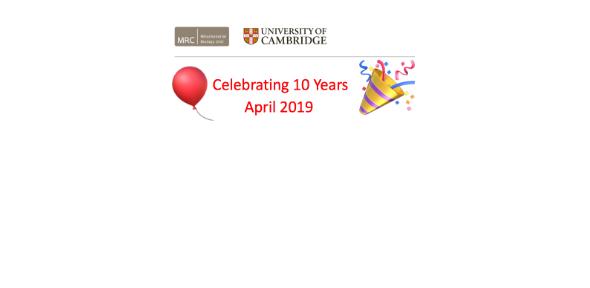
Submitted by Penny Peck on Mon, 01/04/2019 - 00:00
Today, 1 April 2019, marks the tenth anniversary of the MRC Mitochondrial Biology Unit and the appointment of Professor Judy Hirst, FRS, as Interim Director.
Following a Strategic Review in 2008, the MBU was launched in 2009 by Professor Leszek Borysiewicz, who was then the Chief Executive of the Medical Research Council and later the Vice-Chancellor of the University of Cambridge.
The launch of the MBU marked a decision by the MRC to recognise the importance of the mitochondrion and its dysfunction in many human diseases, by creating a Unit devoted to its study. The list of diseases where mitochondrial dysfunction plays a significant role includes neuromuscular diseases, especially in children, and diseases of later life, including both Alzheimer’s and Parkinson’s diseases.
The MBU aims to understand the fundamental biochemical and biological processes taking place in mitochondria, and the roles and integration of mitochondria within the cell. Its scientists aim to learn about the involvement of mitochondria and mitochondrial dysfunction in human diseases, and to exploit our understanding and knowledge to develop new therapies to treat them, linking our activities to clinical medicine via the School of Clinical Medicine and Addenbrooke’s Hospital.
There are currently nine research groups in the MBU. Professor Sir John Walker, FRS, founded the MBU in 2009, having previously been the Director of the MRC Dunn Human Nutrition Unit, and continued as Director until January 2013. He remains in the Unit as Emeritus Director, leading his own research group. He was followed as Director by Professor Massimo Zeviani, who has recently announced that he will be taking up a Professorship at the University of Padova, Italy.

